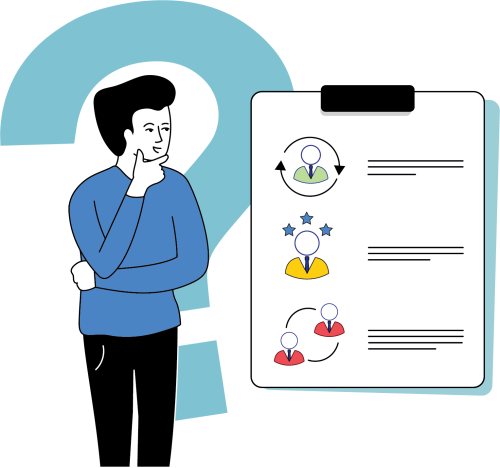Change Agent as the Key to Successful Development

Photo Credit : XBInsight
Change is a phenomenon that is bound to occur and will continue to occur. Change is a natural trait that arises in the process of human life and human civilization. For this reason, adaptation is needed to be able to adapt to changes. Social change is an important change in social structure, and what is meant by social structure is patterns of behaviour and social interaction (Vadrot, 2020). Social change brings certain consequences that are considered or assessed as important for the social structure or even the social system more broadly.
One element in social change is the individual who plays a role in the change. According to Nishikawa (2020), an agent of change is a person or group of people who is trusted as a leader in one or more social institutions. Fletcher (1988), says, a change agent is a person who acts as a catalyst and manages the changes that occur.
"Change Agent" is a term that refers to individuals or groups who influence positive change in society or a particular environment. Change agents work in various institutions in society and have a role in motivating, leading, and encouraging others to adopt desired or necessary changes. A change agent must have strong and good communication skills, knowledge, attitude, leadership, and the ability to manage conflict and resistance to change (Tan, 2010). They must understand the change process that is occurring and could design and implement strategies to achieve the desired change goals. The existence of a change agent is important in bringing about changes in institutions or society so that they can adapt to an ever-changing environment. Change agents are needed in the development process as (Welker et al, 2014; Tan, 2021; Errida &Lotfi, 2021; Azzasyofia et al, 2020):
- Encourage innovation and introduce new ideas, technology and practices that can be used to increase efficiency, productivity, and quality of development.
- Identify social, economic, or environmental challenges and inequalities.
- Help improve organizational processes and structures that are deemed less relevant to the current situation, including changing policies or work procedures.
- Building the capacity of individuals and groups to develop the skills, knowledge and capacities needed to achieve long-term development goals.
- Manage change to reduce resistance, communicate its benefits, and facilitate the necessary adaptation process.
- Encourage community involvement and participation in the development process, thereby enabling every element in society to have a role in designing and realizing the desired changes.
Agent of Change Function

Photo Credit : ManageEngine
In the explanation above, it is stated that agents of change are the key to development. as a catalyst, its existence becomes a liaison between the parties involved in the process. The following are some of the functions of change agents (Jabri, 2012; Erida & Lotfi, 2021):
- Analyse and identify the need for changes necessary to achieve certain goals.
- Design a strategy and action plan to be implemented, including identifying the steps that need to be taken, the resources needed, and estimating the impacts and risks.
- Communicate the vision of change to all stakeholders, including the objectives of the change, benefits and possible impacts that may arise.
- Motivate and encourage participation of all stakeholders to contribute to achieving change goals.
- Manage changes so that the processes carried out run well and can minimize risks.
- Carrying out training, coaching and capacity development of individuals and groups to face existing challenges.
- Carry out measurements and evaluations of the changes made, so that recommendations for improvements can be made if necessary for sustainable development in the future.
Change agents play a role in helping speed up the development process. Its existence, if accompanied by qualified skills, will provide benefits for the changes being made. By understanding its benefits and functions, change agents can help ensure that change is implemented successfully and achieves the desired results for the communities involved.
-Diana Anggraeni
References
Azzasyofia, Mira., Adi IR., & Aritonang, An. (2020). The Role of Change Agents in Community Empowerment Using Information and Communication Technology (ICT): Case Study at Desa Kaliabu, Central Java. IJSW : Indonesian Journal of Social Work Vol.03 No.2. DOI: 10.31595/ijsw.v3i2.266
Errida, A., & Lotfi B. (2021). The determinants of organizational change management success: Literature review and case study. International Journal of Engineering Business Management. https://doi.org/10.1177/1847979021101627
Fletcher, Elizabeth P. (1988). The Change Agent as a Catalyst in Community Education: Leadership Styles and Roles. Community Development Journal. Vol. 23 (2). https://www.jstor.org/stable/44256717
Jabri, M. (2012). Understanding the Role of the Change Agent. Journal of Management Development. Vol. 29 (6). DOI: 10.1007/978-0-230-35624-5_3
Nishikawa, Ken. (2020). Who Is the Agent of Change? South Asian Journal of Business and Management Cases. Vol. 9 (3). https://doi.org/10.1177/227797792095795
Tan, Amy. (2010). Making Good Change Agents: Attitude, Knowledge, Skills. https://www.isixsigma.com/change-management-implementation/making-good-change-agents-attitude-knowledge-skills/
Tan, Jennifer. (2021). The change agent in innovation. Prometheus. Vol. 37 (1). DOI: 10.13169/prometheus.37.1.0044
Vadrot, Alice BM. (2020). Re-thinking the conditions for social change and innovation. Innovation: The European Journal of Social Science Research. Vol. 33 (1) . https://doi.org/10.1080/13511610.2020.1713455
Welker, G., Hobo, A., Danchell, E., Van der Weerd, Jet & Ahaus, Kees. (2014). The role of change agents in achieving quality improvement. doi: 10.1186/1472-6963-14-S2-P138

